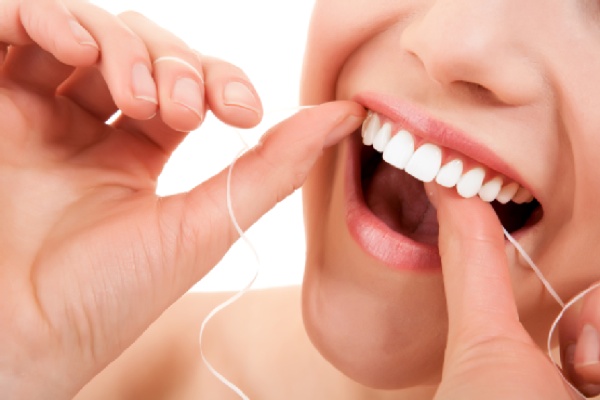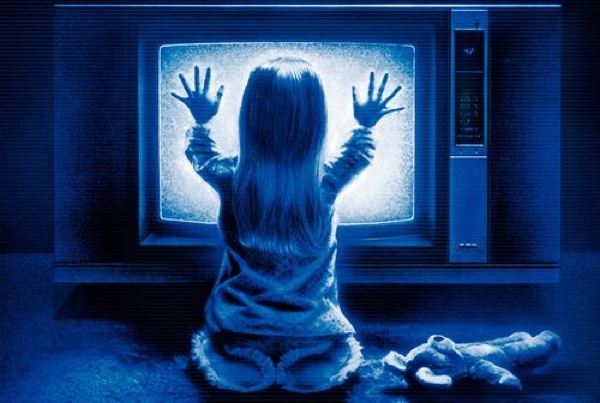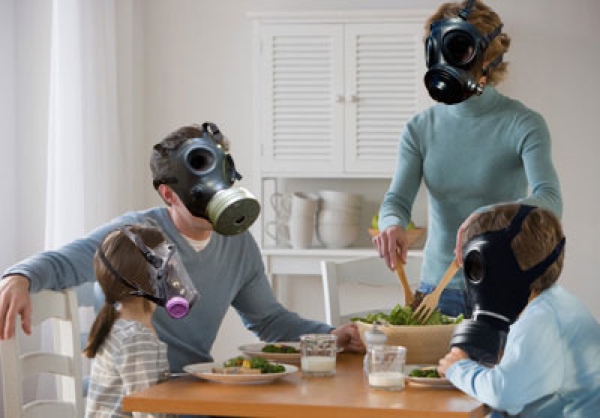 Music
Music  Music
Music  History
History 10 Less Than Jolly Events That Occurred on December 25
 Weird Stuff
Weird Stuff 10 Funny Ways That Researchers Overthink Christmas
 Politics
Politics 10 Political Scandals That Sent Crowds Into the Streets
 Weird Stuff
Weird Stuff Ten Bizarre Facts About The Doge Meme
 Our World
Our World 10 Ways Your Christmas Tree Is More Lit Than You Think
 Movies and TV
Movies and TV The 10 Coolest Stars to Set Sail on The Love Boat
 History
History 10 Things You Didn’t Know About the American National Anthem
 Technology
Technology Top 10 Everyday Tech Buzzwords That Hide a Darker Past
 Humans
Humans 10 Everyday Human Behaviors That Are Actually Survival Instincts
 Music
Music 10 Surprising Origin Stories of Your Favorite Holiday Songs
 History
History 10 Less Than Jolly Events That Occurred on December 25
 Weird Stuff
Weird Stuff 10 Funny Ways That Researchers Overthink Christmas
Who's Behind Listverse?

Jamie Frater
Head Editor
Jamie founded Listverse due to an insatiable desire to share fascinating, obscure, and bizarre facts. He has been a guest speaker on numerous national radio and television stations and is a five time published author.
More About Us Politics
Politics 10 Political Scandals That Sent Crowds Into the Streets
 Weird Stuff
Weird Stuff Ten Bizarre Facts About The Doge Meme
 Our World
Our World 10 Ways Your Christmas Tree Is More Lit Than You Think
 Movies and TV
Movies and TV The 10 Coolest Stars to Set Sail on The Love Boat
 History
History 10 Things You Didn’t Know About the American National Anthem
 Technology
Technology Top 10 Everyday Tech Buzzwords That Hide a Darker Past
 Humans
Humans 10 Everyday Human Behaviors That Are Actually Survival Instincts
10 Everyday Habits That Might Be Killing You
It seems that most habits these days aren’t good for you. Once upon a moonbeam, cigars and opium and casual racism were perfectly acceptable staples of Western society. Not any more. They have joined a long list of human behaviour that is at best frowned upon and at worst downright dangerous. Perhaps sunscreen, breathing indoors and smiling will one day join that list too.

As well as being tasty, fish is supposed to be great for the brain.
It’s also full of poison. Exactly which poison depends entirely on the fish. While most fish aren’t actually toxic, they are all capable of carrying the toxins in their environment. Fish caught in oceans often come complete with tasty traces of mercury — the ocean happens to be full of the stuff.
Of course, if you want to avoid the horrible hazards of mercury, you could always eat some non-ocean based fishes. But these are often full of pesticides – farmed fish, for instance, are often given pesticides to stave off sea lice. Eating certain fish is also linked to the Big C. Rates of cancer-causing toxin PCB are 16 times higher in farm-raised salmon than in wild salmon. Basically – fish eating habits can kill you.

PFOS and PFOA are pretty nasty chemicals, known to damage the immune systems of mice. They can also cause liver cancer in rodents and induce testicular and pancreatic cancer, screwed up hormone levels and, most worryingly, neonatal death. If the foetus does live, it is more likely to be obese later in life.
Shockingly, the chemicals can be found in everything from food packaging to carpets and electronics – and, most unavoidably, in tap water.
Regulation differs from place to place and state to state, but there is no federal regulation on the chemicals in the US and water companies are not required to test for the toxic chemicals. PFOS have been banned in the EU while Canada seems set to follow suit.
For years, hot water bottles were made from polycarbonate plastic which contain bisphenol A (BPA), a toxic chemical linked to breast and prostate cancer, brain damage, and disruptions to the endocrine system. In 2008, some companies stopped selling the bottles containing the chemical – though they still vouched for its safety. But studies had shown that chromosomal mutations in mice jumped from 1-2 percent to 40 percent when they were kept in cages made of the stuff.
BPA has also been found in baby bottles. Canada, France, and Germany have already banned the substance from appearing in any of their bottles, and the EU is soon to follow suit. BPA can also be found in CDs, DVDs and laptops.

Perflourinated compounds, or PFCs, are a family of fluorine-containing chemicals that make properties stain and stick-resistant. They are incredibly difficult to break down, and can be found in almost everyone in the world. They are also pretty toxic. These chemicals are used in many cleaning and personal products, such as dental floss and shampoo. They’ve been linked to kidney and liver damage, and they’re especially toxic to newborn babies and fetuses. US citizens have the highest amount of PFC levels in the world.

So watching TV was never going to be the healthiest of activities… unless you do star jumps while watching “Dexter”. The University of Queensland recently revealed just how deadly TV can be.
It turns out that for every hour of TV we watch, we lose 22 minutes of our life. In the study, Australians aged over 25 watched TV for over 9.8 billion hours with the loss of some 286,000 years of their combined existence. Or to put it another way: if you watch six hours of TV every day you risk dying five years earlier. This is much like smoking two cigarettes for every hour of TV you watch. So for those of you who like to smoke a couple of ciggies while watching “Modern Family” marathons – you’re actually doubling the total time shaved off the end of your life.

Forget car exhaust and industrial smoke: the air inside your house is apparently four times more polluted than the air outside. This pollution comes from what are called “volatile organic compounds” (or VOCs): things like plants, paint and cleaning products. New buildings are especially polluted, since they have so many new materials inside.
The health effects of VOCs include a range of horrifying things, such as damage to the liver, kidneys and central nervous system – as well as less horrifying things, like eye and nose irritation and dizziness. It almost goes without saying that VOCs have also been linked to cancer.

Ah, but what if you do eat healthily, work hard, and let yourself be mildly grumpy? Surely you’d be guaranteed a long (though possibly miserable) existence?
Sulphur dioxide is found in things like dried fruit, fruit juices and even in the doctor’s choice: muesli. It’s used as a preservative, and as the glue which helps to hold the food together. Unfortunately it’s not made for the human body – and “when introduced it inhibits specific nerve signals, restricts lung performance, and is a direct allergen.” It’s also been linked to miscarriages, and is one of the top two most common air pollutants.

So you don’t exercise as much as you should, and maybe you don’t eat all that much fruit. And yes, perhaps you drink your own body weight in alcohol. Perhaps hourly. But at least you have one thing going for you: you’re happy, and them health freaks can’t take that one away from you, can they?
Well it turns out that they can. Happiness is a health risk.
The Longevity Project is a study that began in 1921; over the decades since then, it has followed 1,500 participants. One of the project’s many discoveries is that happy people are likely to die younger than people who are a bit miserable. Or more precisely – in the words of Dr Leslie Martin of La Sierra University – “Participants who were the most cheerful and had the best sense of humour as kids lived shorter lives, on average, than those who were less cheerful and joking.”
People who are happy are more likely to take risks, gamble with their health, eat more unhealthily and generally burn out as young, alcoholic, presumably still-happy junkies. If you do fall into the optimist category, don’t worry about it (and let’s face it, you won’t); death himself couldn’t wipe that smile off your face.

Eating popcorn, or some deliciously greasy French fries, is not going to help you win a marathon any time soon. Everyone knows that fast food is full of killer crap – but it’s not just the food that’ll clog your arteries.
The bag it comes in pretty much means that you’re eating death-in-a-bag. Scientists in Toronto discovered that the chemicals used in junk food wrappers to make them grease proof, are migrating from the bag to the food – and thereby to our bodies. These chemicals are, according to the FDA, “likely carcinogens”, which can cause cancer.
Diacetyl, an FDA-approved chemical found in the fake butter flavoring on popcorn, is also apparently responsible for a respiratory illness which can cause something called “popcorn workers lung“. Workers in popcorn-making factories are at high risk of picking up the illness – and it has already turned up in one American who merely ate a load of popcorn each day.

For years, everyone from skin specialists and doctors to Australian film directors have advised us to wear more sunscreen. Considering its skin cancer prevention powers, this seemed like good advice.
But it turns out that sunscreen is not as super as it seems. In addition to stopping you getting sunburn, sunscreen also blocks out the vital vitamin D. This truly terrific vitamin helps maintain healthy bones, promotes a balanced immune system, and fights HIV. It also eats cancer cells. So it shouldn’t come as a surprise that people deficient in the vitamin are more likely to get sick. In fact, in Europe it’s estimated that a quarter of women who died from breast cancer might have lived if they had maintained adequate vitamin D levels and just saw more sunshine. Or, perhaps, just wore less sunscreen.
The problems with sunscreen have been known for some time now. Numerous chemical toxins have been found in certain sunscreen products down through the years. These poisonous and unpronounceable toxins include benzophenones, cinnamates and menthyl anthranilate which are banned in the EU, Canada and Australia. All are still sold in a number of sunscreen products in the US. Even worse is the fact that many of these chemicals have estrogen-like side-effects, which can lower sperm counts and cause birth defects in children. It also affects penis size.
The free radical causing agents found within sunscreen are absorbed into the bloodstream in at least 35 percent of cases, which damages the fats, proteins, and DNA of certain cells. This can age the skin prematurely, and eventually lead to cancer. So as well as defending you from skin cancer, some sunscreen products can CAUSE CANCER. And penis envy.
You can read more from Kevin Forde on his website.









